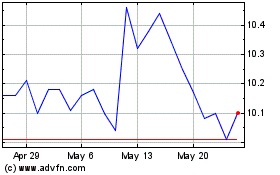U.K. Government Says Exit From EU Will Cause Economy to Shrink
April 18 2016 - 5:20AM
Dow Jones News
LONDON—Britain would be permanently poorer if it left the
European Union, according to a U.K. government's long-term
assessment of the economic costs of a British exit from the bloc,
due to be published later Monday.
George Osborne, Treasury chief, told the British Broadcast Corp.
on Monday that leaving the EU would cost households £ 4,300
($6106.9) a year.
"That's a fact everyone should think about as they consider how
to vote," said Mr. Osborne, British Prime Minister David Cameron's
closest political ally. "As chancellor, I'm clear, we're stronger,
safer and better off in the European Union."
The government report is also due to say an exit from the bloc
would cause Britain's economy to shrink by 6% by 2030.
The cost-benefit analysis comes as the U.K. is gearing up to
vote in a June 23 referendum on whether to stay in the bloc or
leave. Mr. Cameron, who is spearheading efforts to persuade Britons
to vote to remain in the EU, has made economic security central to
his arguments. He says access to the EU's single market of 500
million consumers is crucial for the economy's health and that if
Britain left the bloc continued access would come at a price,
including contributing to the EU's budgets and being bound by its
rules without having a say over them.
But those who want the U.K. to leave the EU, including London
Mayor Boris Johnson and other lawmakers in Mr. Cameron's
Conservative Party, accuse Mr. Cameron's team of scaremongering.
They say the U.K. would thrive economically outside of the EU
because it would continue to be able to trade with Europe while
also being freer to negotiate trade deals with faster-growing
economies and less restricted by regulatory burdens imposed by
Brussels. A spokesman for Vote Leave, which is campaigning for
Britain's exit from the bloc, said exposure to the eurozone has
damaged the British economy and will create future problems. "It is
safer to take back control."
The document, expected to be published later Monday, will set
out the likely impact of credible alternative models to Britain's
membership in the EU. Estimates of the economic impact of a British
exit from the EU vary wildly, largely because of uncertainty about
how the U.K.'s eventual trade relationships would look—both with
the EU and with the other trading partners Britain would need to
negotiate bilateral deals with if it no longer has access via
EU-secured deals.
How people view the effect of the EU on the U.K. economy will be
the most significant determinant of how they vote, said Joe Twyman,
head of political research at pollster YouGov PLC. "It will be
hugely important," he said.
Write to Jenny Gross at jenny.gross@wsj.com
(END) Dow Jones Newswires
April 18, 2016 05:05 ET (09:05 GMT)
Copyright (c) 2016 Dow Jones & Company, Inc.
Pacific Current (ASX:PAC)
Historical Stock Chart
From Oct 2024 to Nov 2024

Pacific Current (ASX:PAC)
Historical Stock Chart
From Nov 2023 to Nov 2024
